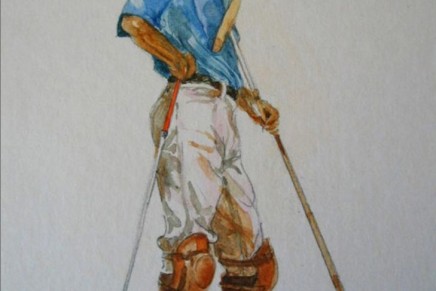Book 1 in the Maltese Cat Book Series entitled Escheatment is here. The first two chapters:

Photo Credit: @mrbtyke via San Francisco The Official Guide (sftravel.com/ facebook.com/onlyinSF/)
Escheatment: The process of turning over of unclaimed or abandoned property to a state authority. It requires banks, insurance companies, corporations, and certain other entities to report and submit their customers’ property to the State Controller’s Office when there has been no activity for a period of time. Common types of unclaimed property are bank accounts, stocks, bonds, uncashed checks, insurance benefits, wages, and safe deposit box contents.
Prologue
Afghanistan
Buried high in the mountains, the caves were pervasive and deep. They offered their occupants safety from unexpected aerial attacks, and from invading troops as well. Access to the caves along the small, winding, rocky roads was precarious. Sentries, posted at the cave entrances, had a clear view of intruders from miles away, which allowed the occupants options to either defend themselves or disappear further into the subterranean reaches. Thus, the Taliban rebels could survive, as they already had, for years.
Inside, Taliban commander Karzai Shanzad was studying maps with a stern countenance as his adjutant, Ali Tareen, was addressing him.
“These Americans are jackals. They prey on the weak. They rain down terror from the skies with their drones. They are too cowardly to stand and fight as men.”
He spat vehemently to the side as he completed his last sentence.
The commander was calm as he spoke.
“They bring death to our people. It is only just and proper that we provide them with the same treatment as they accord us.”
“But we do not have the delivery capability to make air strikes against the US. In fact, our finances are rapidly being depleted,” said Tareen.
“It is true what you say,” responded Shanzad. “We do not possess ICBMs or strategic bombers with which to mount an attack from afar. But we have something more valuable. We control the minds of men. And we have exactly such men already in place within America today. They shall deliver our payloads. They will be as silent and as swift as the drones the Americans send into our homes. And they will be far more deadly.”
“We will send our weapons of destruction into their American homes, and businesses, and schools and places of worship. We shall defeat them, Inshallah.”
“You are wise, Commander, and always the optimist.”
“I am a realist, Ali Tareen. Size is not all important in a fight. The USSR could not defeat the US. But, little Vietnam did. They used a strategy that worked for them. We shall use a strategy that works for us. And do not forget – we defeated the USSR here in our homeland. We shall defeat the US – in their own home.”
Chapter 1
San Francisco Financial District
James Van Houten was sitting at his desk in the darkness. Only the glow of his laptop computer screen illuminated him. The office glass wall on one side offered a view of the dark trading floor with multiple desks, all empty now at night. James was the son and only child of Steven Van Houten, CEO of Van Houten Holdings, a stock brokerage company in San Francisco. Steven’s father, Cyrus, had been the company’s founder.
James lived a privileged life. Private schools, a business degree from Dartmouth and, upon graduation, an immediate high-level position at his father´s company. Money was never lacking in his life. He always had fast cars, expensive hobbies, and lavish vacations. And with that grew a rabid disregard for other people. He was a profligate who felt it was his right in life to be pampered while others toiled.
He was physically handsome, with his hair slicked back like Gordon Geckko, the villain in the film Wall Street. In fact, in his own bovaristic way, he modeled himself on Michael Douglas’s film character, produced the year he was born. Together with the pin-striped trousers, white French-cuffed shirt, suspenders (he preferred to refer to them as braces) and school tie, he liked to feel the power of the Wall Street villain. James could empathize with Gekko. He, too, would make his own fortune by any means possible and enjoy the rewards that came from it.
He now looked down at his computer screen, touched some keys and waited. Slowly a self-indulgent smirk spread over his lips, and he slowly uttered just one, satisfying word.
“Ka-ching!”

Photo: @idroneman/ Check out his feed on instagram.com/idroneman/ via San Francisco The Official Guide (sftravel.com/ and www.facebook.com/onlyinSF/)
Chapter 2
Department of Homeland Security
The Department of Homeland Security (DHS) office was abustle. Chief Special Agent Elmer Traywick was pouring over stacks of paper at his desk when Special Agent Johnson entered the cubicle.
“We got another ping on the grid with the Taliban account.”
“Where?”
“Bern again. Large transaction. Then it disappeared. Just like before.”
Traywick showed his obvious displeasure.
“When?”
“Today. The money was picked up in person. Just like the times before.”
“Dang! Can’t we get surveillance cameras on that bank?”
“The Swiss won’t cooperate. None of the adjacent buildings have a good view of the front of the bank,” said Johnson.
“The Swiss will do business with anyone if there’s money in it for them.”
“They won’t with Americans. Too much hassle with our IRS.”
“So much for transparency post-911. I don’t see how we are supposed to do our job without the resources. If we could only find out where the money is going afterwards,” decried Traywick
“Could be anywhere. It could be sent out of country by courier. By air. Or by truck. It could go off to Eastern Europe to buy weapons. Or it might never leave the country at all. It could be deposited in any one of a hundred banks in Switzerland, in smaller amounts, to pay for weapons or what not. Lots of arms dealers have Swiss accounts under a company name. There is absolutely no way of tracing it.”
“But we have information that it is picked up in person at the bank,” Traywick reminded him.
“Yes, Sir.”
¨You have electronic information that it was picked up. That means, it says so in some computer. For all we know, that info could be false. For all the high tech gadgets we have access to, there is nothing that beats eyes on the ground. And that is exactly what we don’t have.”
“So what do we do?”
Traywick thought a moment as he calmed himself. It wasn’t Johnson’s fault that they were tracking a ghost. “Just keep monitoring the account. Maybe they will change their methods and we can get a break.”
Johnson left Traywick’s cubicle.
Agent Traywick went back to thinking. They had been tracking terrorist accounts for years. This one, in particular, was an old one. It had been inactive for years. Then suddenly two years ago it had come back to life. They had traced almost $180 million that had gone through the account, only to disappear after each deposit. There was no pattern. No leads. All they knew was that the account was held by persons identified as the Taliban. With the US still at war in Afghanistan against the Taliban, these developments were particularly disturbing.
He got Agent Johnson on the phone.
“See if you can find out where the deposits are coming from.”
“Sorry, Sir. We have tried that. We can’t hack into that part of their system.”
“Try it a different way. Do a search on transactions of the same amount of money or combinations that add up to that amount. Do a global search. But start with U.S. transactions. Anything that looks remotely similar. I want to know where this money is coming from.”
Johnson promised to try and Traywick hung up.
Traywick thought, if we can just find the source, we can plug the hole in the dam.
Can’t wait for the next installment?
Go to: amazon.com/ Escheatment-Maltese-Cat-1






